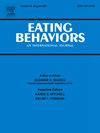Adverse childhood experiences, adult emotional eating, and the role of self-compassion
IF 2.4
3区 医学
Q2 PSYCHIATRY
引用次数: 0
Abstract
Adverse childhood experiences (ACEs) are risk factors for the development of a range of physical and mental health problems throughout the lifetime, including emotional eating. Though the negative effects of ACEs are well established, research on protective factors that may mitigate these effects is limited. Self-compassion, which involves treating oneself kindly during challenges, is linked to greater emotional resilience and better emotion regulation. This study examined if ACEs were associated with adult emotional eating and how self-compassion affected this relationship. Adult participants (N = 98) were recruited nationally and completed self-report measures as part of a larger study on self-compassion, distress tolerance, and health belief change. Participants who passed attention check questions and completed optional measures of ACEs and emotional eating were included in the current sample. ACE scores were dichotomized into high (≥4) and low (<4). Multiple linear regressions examined interactions between variables, and mediation analyses explored self-compassion's indirect effects on the ACEs-emotional eating relationship. When controlling for age and socioeconomic status, high ACEs predicted greater propensity for emotional eating. Contrary to hypotheses, self-compassion did not moderate the ACEs-emotional eating relationship, but lower levels of self-compassion emerged as a significant mediator. Findings suggest that higher ACEs may be related to greater adult emotional eating through reduced self-compassion. Results are limited by potential recall bias, reliance on self-report measures, and the cross-sectional nature of the study. Future work should test interventions that enhance self-compassion to reduce emotional eating in adults with ACEs.
不良童年经历、成年情绪化进食与自我同情的作用
不良的童年经历(ace)是一生中一系列身心健康问题发展的危险因素,包括情绪化饮食。虽然ace的负面影响是众所周知的,但对可能减轻这些影响的保护因素的研究是有限的。自我同情,包括在挑战中善待自己,与更强的情绪弹性和更好的情绪调节有关。这项研究调查了ace是否与成人情绪化进食有关,以及自我同情如何影响这种关系。在全国范围内招募了98名成年参与者,并完成了自我报告测量,作为一项关于自我同情、痛苦容忍和健康信念改变的更大研究的一部分。通过注意力检查问题并完成ace和情绪化饮食的可选测量的参与者包括在当前的样本中。ACE评分分为高(≥4分)和低(<;4分)。多元线性回归检验了变量间的交互作用,中介分析探讨了自我同情对ace -情绪性饮食关系的间接影响。当控制年龄和社会经济地位时,高ace预示着更大的情绪化进食倾向。与假设相反,自我同情并没有调节ace -情绪性饮食关系,但较低水平的自我同情成为显著的中介。研究结果表明,较高的ace可能与成年人通过减少自我同情而产生的更多情绪化进食有关。结果受到潜在的回忆偏倚、对自我报告测量的依赖以及研究的横断面性质的限制。未来的工作应该测试增强自我同情的干预措施,以减少成年ace患者的情绪性进食。
本文章由计算机程序翻译,如有差异,请以英文原文为准。
求助全文
约1分钟内获得全文
求助全文
来源期刊

Eating behaviors
Multiple-
CiteScore
4.20
自引率
3.60%
发文量
65
审稿时长
60 days
期刊介绍:
Eating Behaviors is an international peer-reviewed scientific journal publishing human research on the etiology, prevention, and treatment of obesity, binge eating, and eating disorders in adults and children. Studies related to the promotion of healthy eating patterns to treat or prevent medical conditions (e.g., hypertension, diabetes mellitus, cancer) are also acceptable. Two types of manuscripts are encouraged: (1) Descriptive studies establishing functional relationships between eating behaviors and social, cognitive, environmental, attitudinal, emotional or biochemical factors; (2) Clinical outcome research evaluating the efficacy of prevention or treatment protocols.
 求助内容:
求助内容: 应助结果提醒方式:
应助结果提醒方式:


